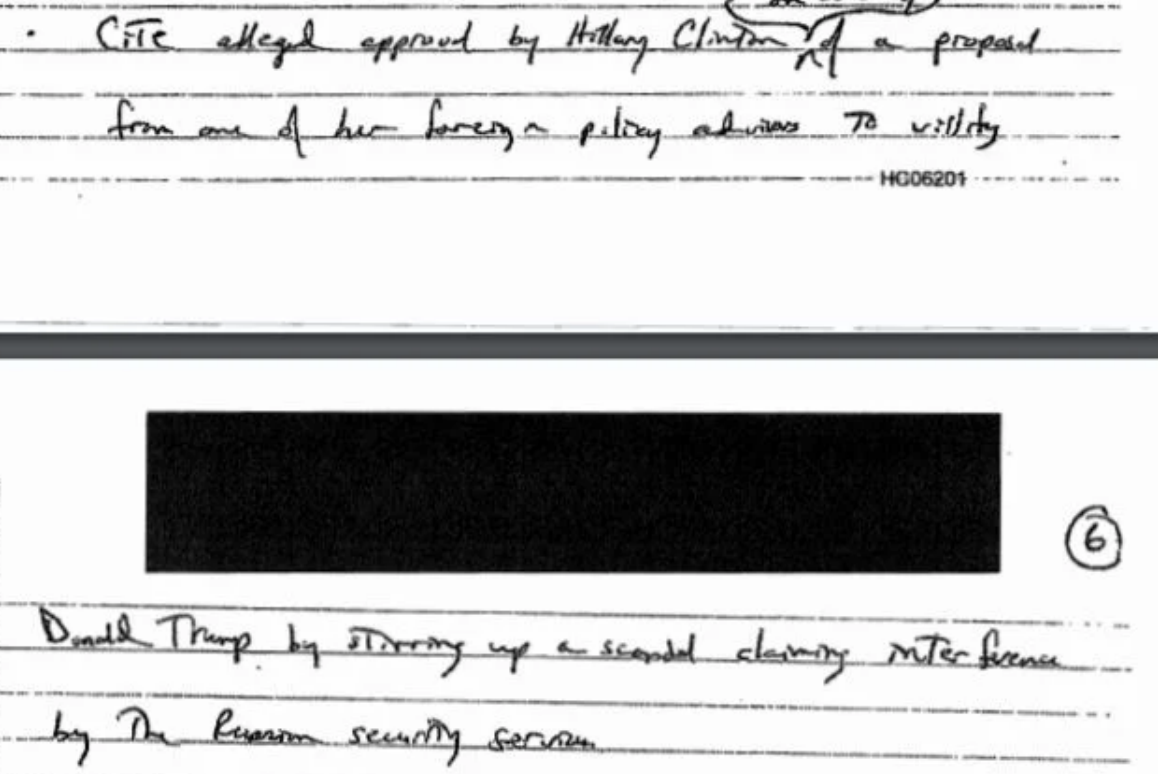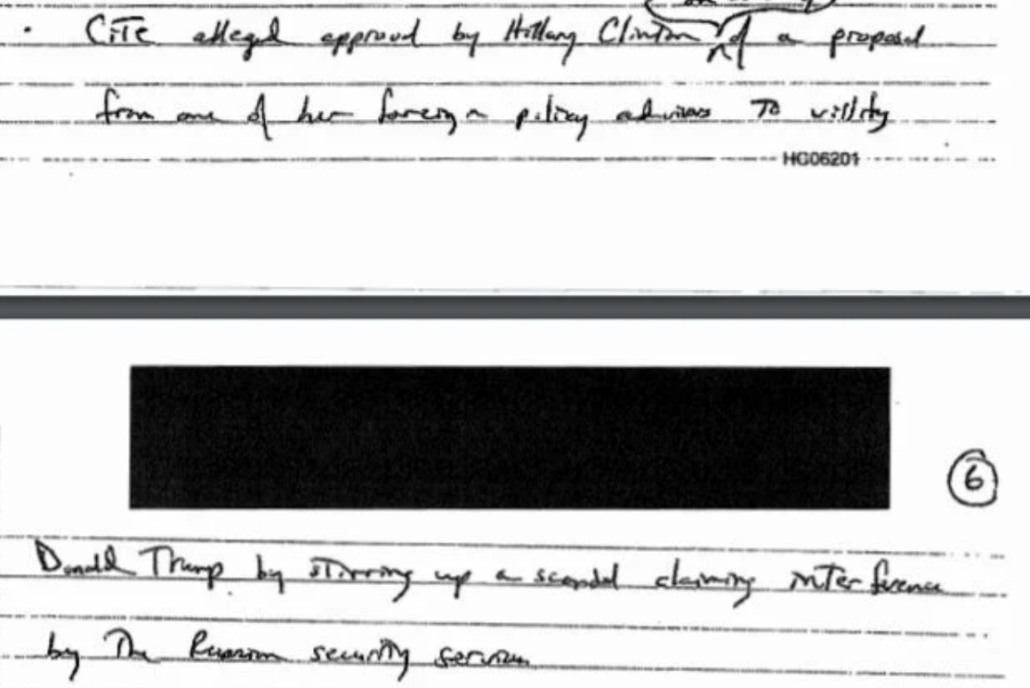Dear Jeff Gerth: Peter Strzok Is Not a Media Critic
I really hope that after this and one more post on CJR’s series performing “Russiagate,” I’ll be done for good. CJR is not going to correct, much less retract, a piece that makes clear errors and relies on an undisclosed Russian intelligence product. So all that’s left is to describe what CJR might have done — as editor Kyle Pope has said was his goal — to say something new about the journalism on the Russian investigation, which I’ll do in a follow-up.
But Jeff Gerth said something in last week’s Zoom conference that revealed a(nother) serious cognitive problem with his project. [Since CJR did not record the event, Dan Froomkin downloaded the closed captions to provide an approximation, which I’ve posted here.] When invited to address any question that the moderator, Berkeley School of Journalism Dean, Geeta Anand, had not asked, Gerth addressed why he (claimed to) focus so closely on the NYT.
[Jeff Gerth] 14:03:21
Well, I wanted to address a question that I’ve been asked quite a bit that didn’t come up here, which is why I focused so much on the New York Times.[Jeff Gerth] 14:03:34
And so my answer to that question is threefold.[Jeff Gerth] 14:03:39
One. It’s the most influential. No widely read news outlet.[Jeff Gerth] 14:03:46
Certainly in America, perhaps in the World number 2. It’s the only news organization whose coverage of the Trump Russia matter was repeatedly criticized by the FBI in internal documents that later became public.[Jeff Gerth] 14:04:11
And obviously, if other news organizations have been criticized by the FBI in documents, I would have reported on that as well.[Jeff Gerth] 14:04:20
But the New York Times stood out. That regard. So that’s a second reason.[Jeff Gerth] 14:04:26
And the third reason is, that the times provided a valuable window into their editorial and repertory decision making by allowing a filmmaker into the newsroom for a year and a half, and then you know the fruits of it became a 4 part series that aired in 2[Jeff Gerth] 14:04:50
1,018, and so that offered invaluable.[Jeff Gerth] 14:04:57
Raw material for any journalist. Looking at at this story, and a lot of the documentarians work feature.[Jeff Gerth] 14:05:09
The stories that I was interested in, as well as the stories that the FBI was internally being quite critical of, as well.[Jeff Gerth] 14:05:19
So those those are the the main reasons why there’s so much in the piece about the New York Times. [my emphasis]
Now, as I have shown, Gerth actually didn’t focus on the NYT. His main villains — those who chased the Steele dossier — published elsewhere. And he ignored almost all of NYT’s Pulitzer winning coverage of Russia. He ignored a September 2016 story revealing how often Julian Assange’s Wikileaks releases served Russia’s political interests. He ignored a December 2016 epic that described the Russian hack-and-leak from the DNC perspective, one that completely debunks Gerth’s claims that the hack-and-leak had limited impact on Hillary’s campaign. He ignored other 2016 Pulitzer-winning stories — on Russia hunting down its enemies in other countries, Russia’s use of disinformation, the elite hackers Russia was recruiting, and Russia’s cultivation of the far right — that show the framework with which NYT’s editors came to their 2017 coverage. He ignored a 2017 report on the Russian contacts that Jared Kushner omitted from his application for clearance. He ignored a 2017 report that Trump knew Mike Flynn had been an unregistered agent for Turkey before Trump appointed him to be National Security Adviser. He may or may not have ignored a 2017 story on how Trump bragged to Sergey Lavrov that he fired Jim Comey to end the Russian investigation, but if he mentioned it, he ignored the Comey part, which undermined Gerth’s own wildly generous interpretation of Trump’s related comments to Lester Holt. Gerth included two (one, two) of three stories on the June 9 meeting, but not the one revealing that Trump had drafted Don Jr’s false statement about the meeting. That’s particularly problematic given that Gerth’s treatment of an interview NYT did with Trump (the only story linked in this paragraph that wasn’t part of NYT’s two Pulitzer winning packages) focused on the dossier and not the discussion Trump had with Putin about the topic he used for his cover story about the June 9 meeting.
This would have been a very different series had Gerth really focused on the NYT, as he claims to think he did.
But something Gerth said really surprised me. A key to his purported reason to (claim to) focus on the NYT is that, he describes, the FBI “criticized” NYT’s coverage. NYT was, “the only news organization whose coverage of the Trump Russia matter was repeatedly criticized by the FBI in internal documents that later became public,” Gerth said. The documentary The Fourth Estate focused on, “the stories that the FBI was internally being quite critical of,” Gerth claimed.
He even asserted that the NYT was the only outlet on whose coverage the FBI was closely focused. “If other news organizations have been criticized by the FBI in documents, I would have reported on that as well.” That claim would be quite a shock to Andy McCabe, whose focus on the WSJ coverage of the Clinton Foundation showed up in two DOJ IG Reports and provided the bogus excuse for his firing. And if Gerth had covered the Mike Flynn case with any level of attention, he would also know that the FBI launched an investigation into some of Sara Carter’s inaccurate reporting, which had been fed to her by Senate Judiciary Committee staffer Barbara Ledeen. Bizarrely, in his coverage of the dossier, Gerth made no mention of the sustained FBI discussions of the September 2016 Michael Isikoff story based on Christopher Steele’s reporting, even though they appear in the DOJ IG Report on the Carter Page FISAs; he discussed the Isikoff story at length, but not the FBI effort to confirm whether Steele or Glenn Simpson was Isikoff’s source.
Gerth doesn’t even account for all the discussions of news coverage in Peter Strzok’s texts, though one such text appears to be one of the two instances of “criticism” of the NYT he speaks of.
My own coverage of Strzok’s sustained attention to such stories — as well as Mueller’s attempts to track how investigative subjects worked the press, including Konstantin Kilimnik — is what made Gerth’s claims so confusing to me.
It led me to suspect Gerth totally misunderstood the purpose of Strzok’s annotation, and thereby saw it as something different than the attempts to stave off clear errors in Devlin Barrett or Sara Carter’s reporting, the woefully belated effort to attribute the Yahoo reporting, to say nothing of efforts to learn how Roger Stone and Kilimnik were planting false stories as part of their attempts to cover their tracks.
The FBI has no business in doing press criticism (though it does attempt to correct dangerously incorrect reporting). It does, however, have reason to track classified or investigative leaks and public claims made by subjects of their investigation. Which is what the reams full of records on Strzok’s work show him doing.
In my own coverage of the Strzok annotation on which Gerth hangs most of his claim of FBI criticism of the NYT, I surmised that it arose out of his focus on leaks. Some of it clearly seems to reflect concern that the NSA might be not be turning over everything it had found. And Strzok’s observation that the NYT falsely believed an investigation into Stone had already been opened may have come in handy nine months later, when they learned from Ann Donaldson that Richard Burr had provided Don McGahn that same false information just weeks later. Indeed, the identification of a common false belief shared by the NYT and SSCI’s Chair might explain why DOJ refused to share the most sensitive details of the Russian investigation with the committee.
I asked Strzok why he had done the annotation. He explained: “Critique played no role — nobody’s got time for that. My purpose was to figure out who’s talking and whether they had info they weren’t sharing with us and/or whether they were leaking to shape the public political narrative.”
In other words, it was perfectly consistent with all the other known efforts by the FBI to track public reports on ongoing investigations. It was an effort to understand what partners and subjects of the investigation were sharing with reliable journalists. And while the annotation shows two clearly incorrect beliefs on the part of the NYT — that an investigation into Stone had already been opened and that the FBI specifically already had call record returns on Trump’s associates — many of the other observations could have multiple explanations, including that the NYT learned of ties, later confirmed, between Trump’s people and Russian spooks before the FBI did. If that’s the explanation, NYT should be lauded, not criticized.
Those stories in which NYT was so far ahead of the FBI are absolutely ripe for review. I don’t fault Gerth’s focus on them; I fault his silence and at times misrepresentation about the rest of NYT’s coverage. But if you’re going to look at those four stories (one, two. three, four) alleging many ties between Trump and Russia — if you’re going to imagine you’re anchoring an entire 23,000 word piece on the NYT based on the FBI attention to several of those stories — you need, first, to understand what you’re looking at.
Gerth imagined he was looking at the FBI doing media criticism. In a sense, he may have been right. What distinguishes Strzok’s apparent effort to understand an outlier NYT story from Gerth’s attempt to understand the Russia coverage is that Strzok had a better handle on the known facts and he tried to understand why reports deviated from those known facts.
Gerth, over and over, simply imposed his own conclusions onto the things that he saw.
LINKS
The Blind Spots of CJR’s “Russiagate” [sic] Narrative
Jeff Gerth’s Undisclosed Dissemination of Russian Intelligence Product
Jeff Gerth Declares No There, Where He Never Checked
“Wink:” Where Jeff Gerth’s “No There, There” in the Russian Investigation Went
Columbia Journalism Review–and Now Columbia School of Journalism–Have a Russian Intelligence Problem
Dear Jeff Gerth: Peter Strzok Is Not a Media Critic
My own disclosure statement
An attempted reconstruction of the articles Gerth includes in his inquiry



